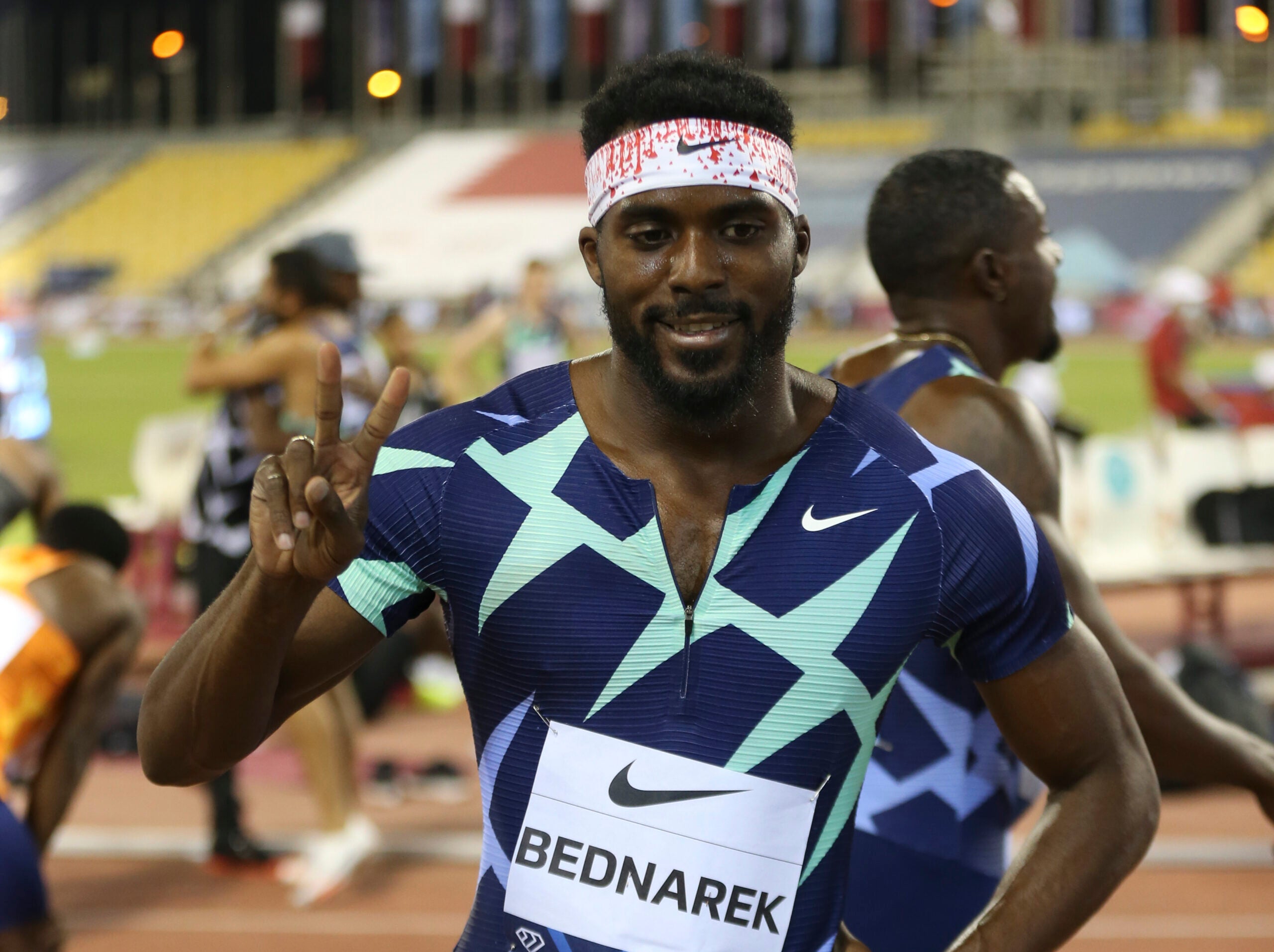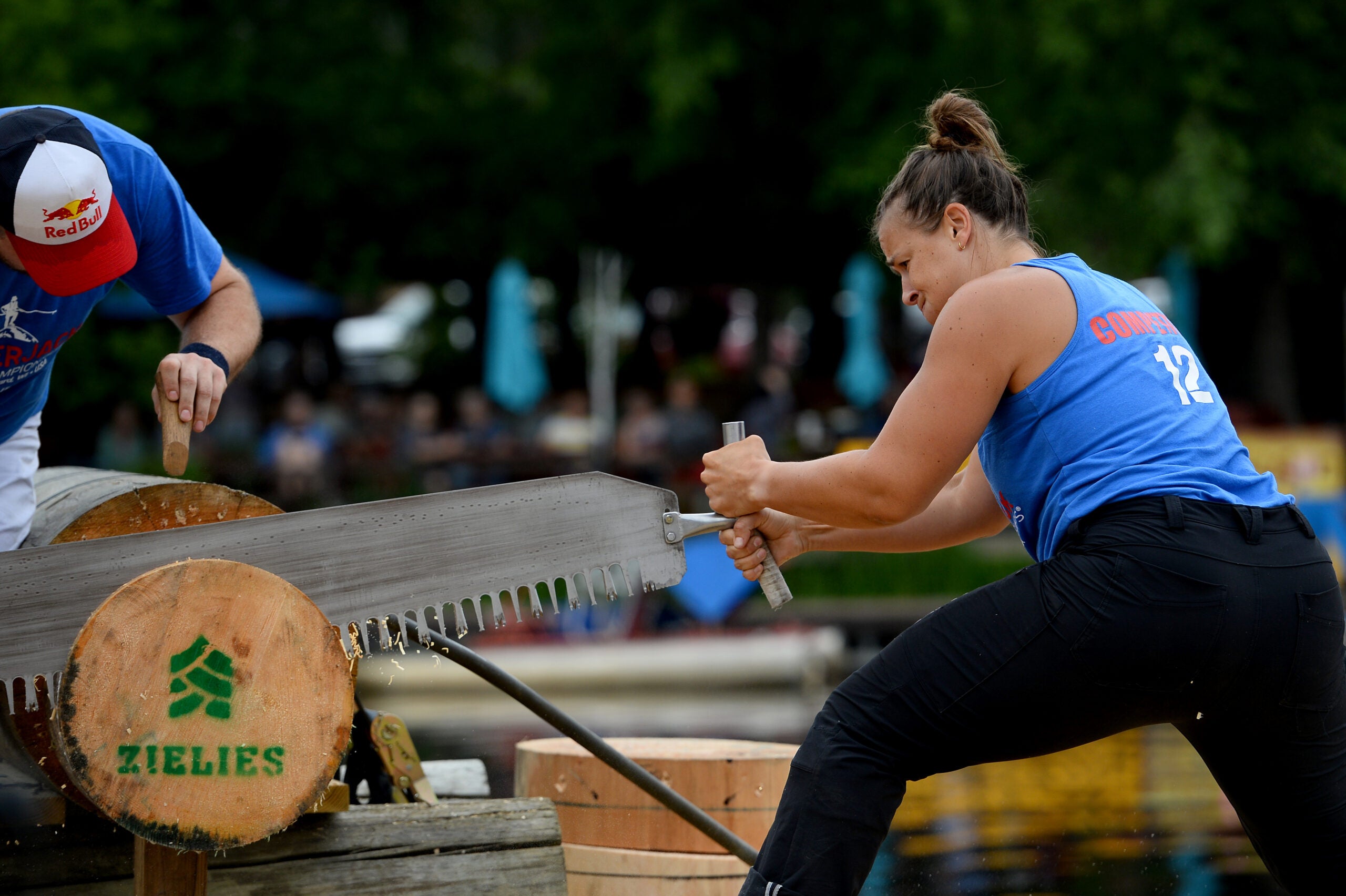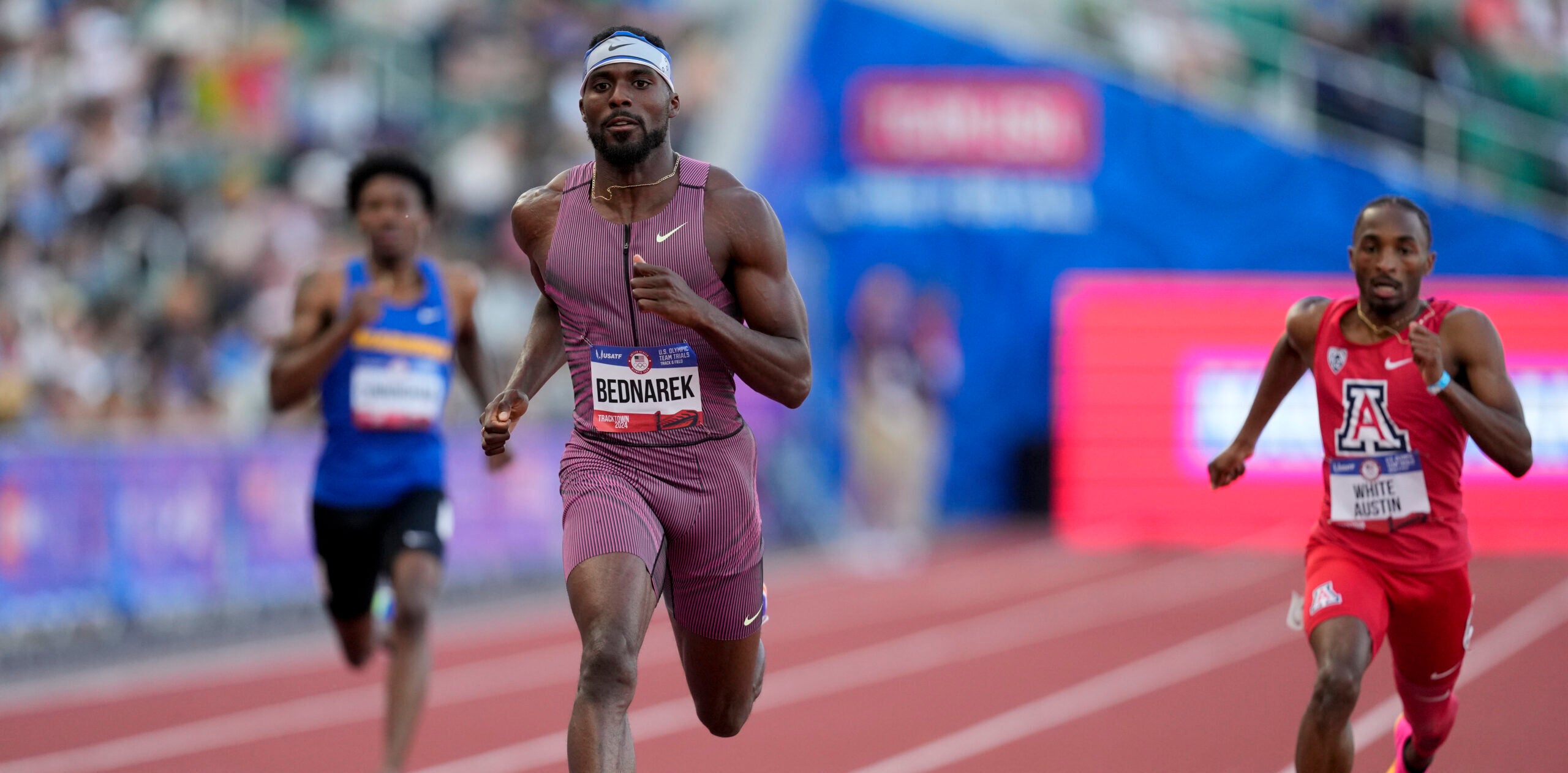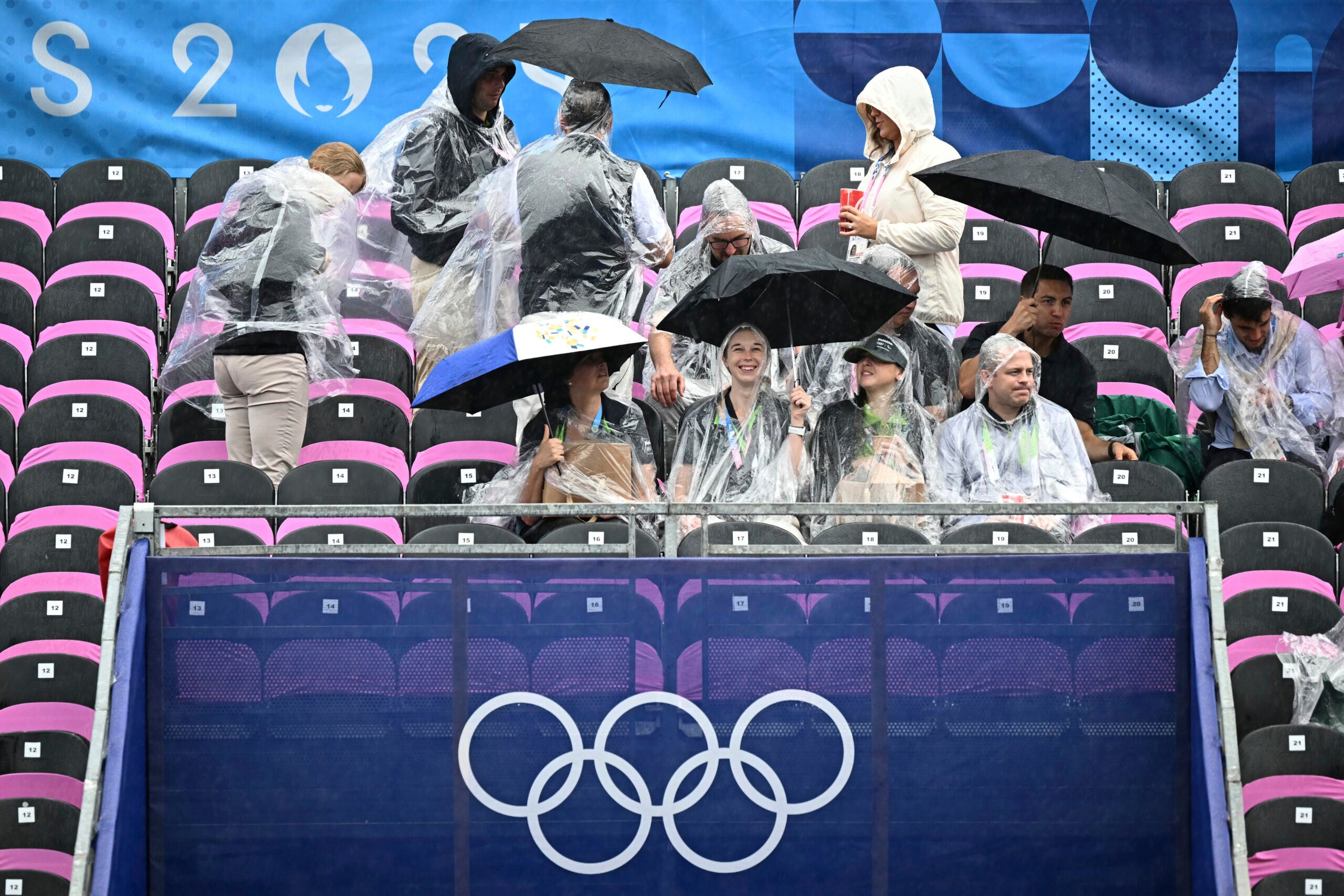At an early age, Kenny Bednarek knew he was an explosive runner. As a middle schooler in Rice Lake, a small town in northwest Wisconsin, he was pitted against high school sprinters and beating many of them on the track.
In addition to excelling at the 100-, 200- and 400-meter distances, Bednarek was a star wide receiver on his high school football team.
But he knew any tackle during any football game could have destroyed his athletic future as a sprinter. Bednarek went on to win silver medals in the 200-meter dash at the 2020 Tokyo Olympics and 2022 World Championships in Eugene, Oregon.
Stay informed on the latest news
Sign up for WPR’s email newsletter.
He was one serious high school injury away from that never happening.
“Football was my first love,” Bednarek said recently on Wisconsin Public Radio’s “The Morning Show.” “But when I’d get tackled by two or three people, I was always thinking ‘I’ve got a (track) season coming up. I (have) got to make sure I stay healthy. I don’t want to miss out.’”
Bednarek joined the program to reflect on his Wisconsin roots, his unconventional path through the junior college system and his ambition to set a new American record for the 200-meter dash.
The following was lightly edited for brevity and clarity.
Kate Archer Kent: How was your running nurtured in Rice Lake?
Kenny Bednarek: We went to the (USA Track & Field Championships). It was me, a kid from Wisconsin — which is not really known for breeding pure sprinters — competing with kids from Texas, Florida and California. So at that point, I knew that I had something good. And I just wanted to get faster every single time I stepped on the track. I always tried to improve my craft every single time I went to practice, and the results showed for themselves. I ended up running 20.43 (seconds in the 200-meter dash) my senior year and was the top-ranked 200-meter sprinter for high school kids.
KAK: You spent a year at an Iowa community college without the support and resources that an NCAA athlete receives. What is your advice for junior college athletes with dreams to reach that national and world stage in their sports?
KB: When I went to the junior college system, I was ashamed in the beginning. But I eventually just embraced it. I had to make do and change my mindset if I wanted to get out there as soon as possible and improve myself. I couldn’t be staying up late. I had to make a bunch of sacrifices. My friends were staying out late, and I had to go to bed at the right time so I could get up in the morning, go to practice and then go to class. You just got to change your whole mindset in order to aspire to do bigger things. You have to be very disciplined.
I know a lot of kids think that people that go to the junior college system are dumb. I just made a few mistakes (academically) in high school and went (to) junior college to right my wrongs. I know some people thought once I went there I was probably going to fizzle out. A lot of kids end up doing that. I didn’t want to just be one of those guys that was forgotten. I made sure to break that cycle. … The journey to becoming a pro, I think I would have made it. I just made my route 10 times harder.

KAK: Talk about becoming a professional athlete by signing with footwear giant Nike in 2019. How does that contract support what you’re able to do in your training?
KB: They ended up sending me here to Florida and the coach I have. They gave me a base salary to support myself. I had to figure everything else out. I had to find my own support team and make sure I have all the right people in my circle in order for me to flourish in the sport.
KAK: How stressful is running as your main income stream?
KB: I try not to think too much about it. When we were in high school and college, we were just running for fun and we were not thinking about money. So I try to keep my mindset like that. I mean, I know I’m going to be always in the finals. I know I’m always going to be fast, so I’m not trying to really worry about the money side. If I just focus on just training and having fun, the money is going to come.
KAK: Can you tell us about where you train? It’s not on a Wisconsin snow covered track.
KB: I train at Montverde Academy near Orlando, Florida, Monday to Friday, from 9 a.m. to 2 p.m. We have to train hard just to run a couple of seconds faster. Then I have other appointments, like rehab, recovery and massage. There’s a lot of stuff that I’m trying to make me better and stronger. So, I don’t get home until about 5 p.m., and then I’m chilling.
KAK: How do you stay in your own head and not care too much about all the noise and the chatter, what others are saying around you?
KB: Once the season starts, I’m pretty much off social media. I mean, I’m on it a little bit, but I’m not on it as much, so I don’t get carried away. … Once we hit the Olympics, Olympic Trials or World Championship trials, I’m off there completely so I can just solely focus on the task at hand. I don’t want any outside disturbances.
KAK: Do you think about your legacy as a track and field runner?
KB: Oh, yeah. For sure. I’m thinking about (that) every day. When it’s all said and done, I want to be the best ever to do it. I want to give back to the junior college community and the track community. In 10-plus years, however long I’m going to be in the sport, I want to make sure that people know who I am and what I did for the sport.
Goals of mine this season are to run 9.7 seconds in the 100 and 19.30 seconds or faster in the 200 meters (thus setting a new American record).
Wisconsin Public Radio, © Copyright 2025, Board of Regents of the University of Wisconsin System and Wisconsin Educational Communications Board.





